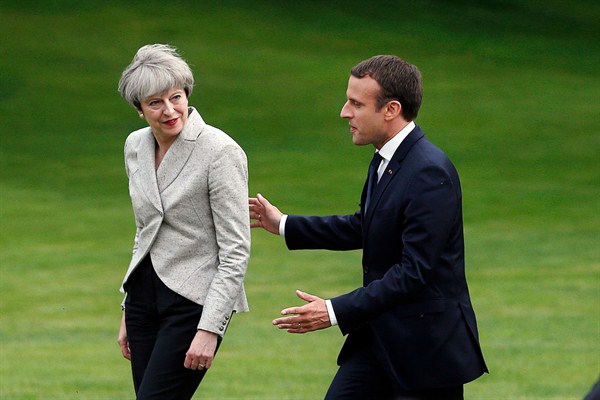The meeting yesterday between British Prime Minister Theresa May and French President Emmanuel Macron was rich in symbolism and irony.
A year ago, neither could have reasonably entertained the notion that they would be leading their countries today. As recently as April, their respective positions regarding the European Union would have led a reasonable observer to assume May would enjoy the upper hand in Tuesday’s meeting. Back then, May had just triggered the EU’s Article 50 to begin the U.K.’s withdrawal from what seemed like a deeply divided—if not mortally wounded—union. Macron was still a virtual unknown, campaigning for the presidency as a dark-horse independent on a vocally pro-EU platform.
But the intervening months, culminating in the British and French general elections of the past week, have reversed their fortunes, upending the political landscape in both countries and radically changing the outlook for the EU’s future prospects.

